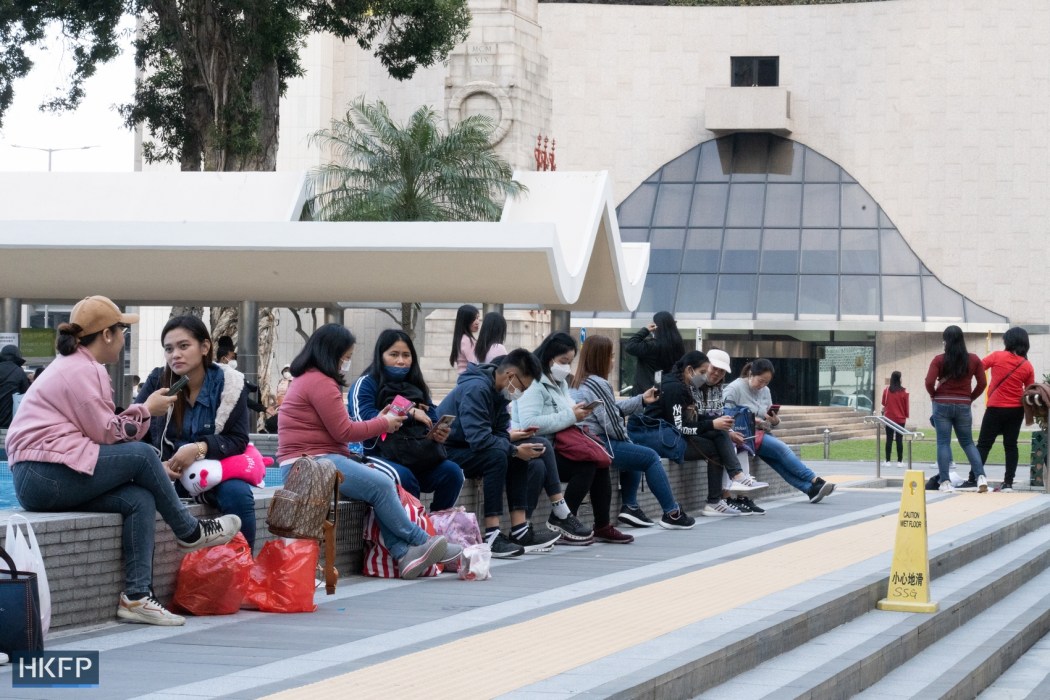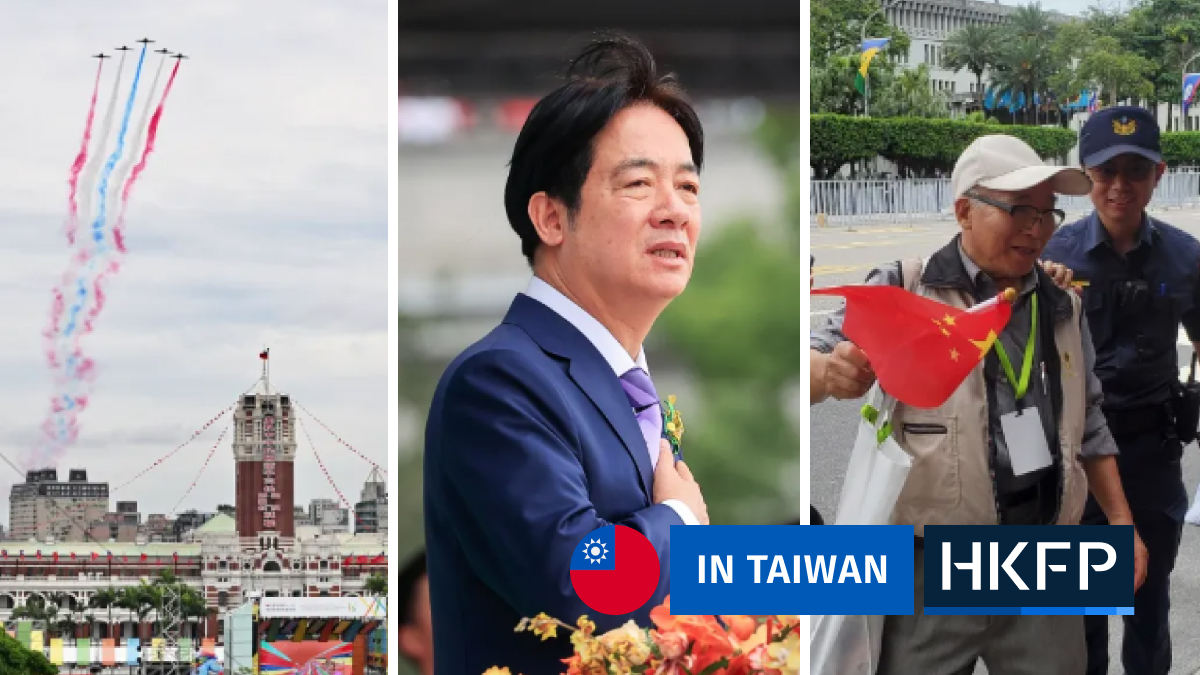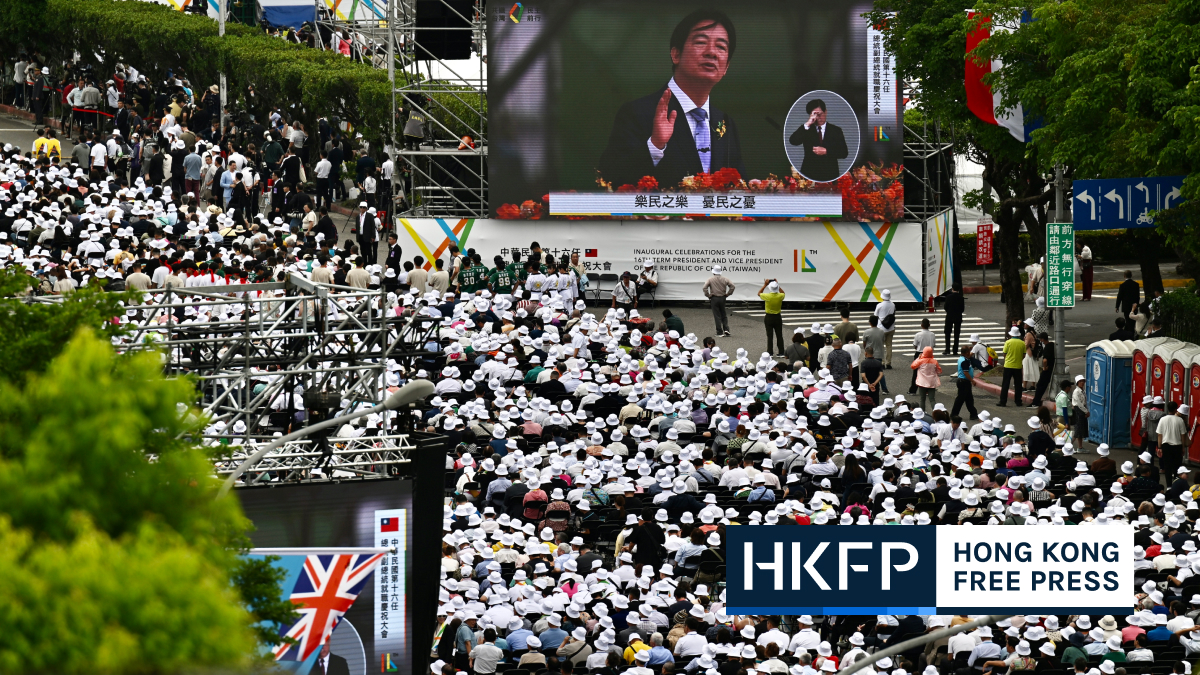Local media reports in Hong Kong have long misrepresented the city’s migrant domestic workers, a research team from Lingnan University has found.

Janet Ho, head of the university’s Department of English, led the textual analysis of almost 400 reports about the mistreatment of migrant domestic workers published by local media outlets from 2010 to 2019. All of the news reports Ho studied were in Chinese.
Ho told HKFP by phone on Wednesday that the research was inspired by speaking with migrant domestic workers. “Sometimes, the migrant domestic workers would tell me about the continuing prejudice they face almost every day, and this aroused my research interest. I wanted to study how they were discursively represented in daily life,” Ho said.
Her team found that the news stories they studied tended to provide mitigating factors for perpetrators, while migrant domestic workers were given what Ho called “less space,” adding that “few background details and character traits” were provided.
“Among those stories dealing with physical abuse cases, we found that 12 per cent indicated the positive personality traits of the employers, whereas only seven per cent indicated the positive personality traits of migrant domestic workers,” Ho said. “This may exert a disproportionate effect on reader perceptions.”

Another major finding was that the news articles in question often highlighted the “emotional suffering of the perpetrators, like their commitment to their children,” thus enhancing their image and “stealing readers’ attention away from the severity of the crime.”
As a consequence, the migrant domestic workers who were victims of mistreatment “may become a secondary concern in these news stories,” Ho added.
Ho said that initial observations suggested that there had been some positive change over time. “Around 2010, 2011, there were more reports giving unfair representation of migrant domestic workers. But it looks like, in recent years, the problem has improved,” she said.

However, there was still room for further improvement. “The media plays a big role in influencing social perception for certain issues, including those related to migrant domestic workers,” Ho said.
“The media should aim for fair representation and diversity of reporting over migrant domestic workers. For instance, instead of sensationalising mistreatment, perhaps journalists could feature migrant domestic workers’ voices… from different backgrounds and socio-economic situations.”
‘Modern-day slavery’
There have been several high-profile cases of migrant domestic worker abuse in Hong Kong that have made international headlines. The assault of Erwiana Sulistyaningsih at the hands of her employer, who was later jailed for six years, sparked calls for change in how migrant domestic workers were treated in the city.

Advocates, however, have noted that very little has changed in terms of policy, with domestic workers still subject to stringent rules regarding changing jobs and having to live with their employer.
While the government maintains that such policies are in place to control immigration and prevent migrant domestic workers from working in the city illegally, rights activists have said they enable modern-day slavery for the city’s roughly 340,000 migrant domestic workers, most from Indonesia and the Philippines.
Research has shown that domestic workers contribute significantly to the city’s economy, freeing up parents from childcare and other duties so they can enter the workforce.
Support HKFP | Policies & Ethics | Error/typo? | Contact Us | Newsletter | Transparency & Annual Report | Apps
Help safeguard press freedom & keep HKFP free for all readers by supporting our team

LATEST FROM HKFP
HKFP has an impartial stance, transparent funding, and balanced coverage guided by an Ethics Code and Corrections Policy.
Support press freedom & help us surpass 1,000 monthly Patrons: 100% independent, governed by an ethics code & not-for-profit.










